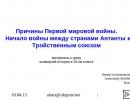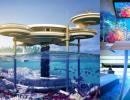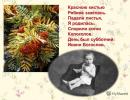The man who survived 2 nuclear explosions. Life after a nuclear explosion. Stories of people who survived in Hiroshima and Nagasaki. Should Japan have been bombed at all?
In August 1945, mankind first became acquainted with the monstrous destructive power of atomic weapons. As a result of two atomic strikes by the United States on the Japanese cities of Hiroshima and Nagasaki, a total of 150,000 to 246,000 people were killed, according to various estimates. Tens of thousands of Japanese survivors of the atomic bombings died in the following years from their effects.
In Japan, there is a special term "hibakusha". They designate people who have been exposed to an atomic explosion and its damaging factors.
The “hibakusha” include: those who were within a few kilometers from the epicenter during the explosion; located less than two kilometers from the epicenter within two weeks after the explosion; exposed to radioactive fallout; children born to women who fall into any of the above categories during pregnancy.
Tsutomu Yamaguchi got a unique fate - he survived the atomic nightmare twice.
Hiroshima after the American atomic bombing. Second World War(1939-1945). Photo: RIA Novosti
Business trip
In 1945 he was 29 years old. Unlike many peers, he did not end up on the battlefield in the ranks Imperial Army. Yamaguchi was a high-class shipbuilding engineer. In the summer of 1945, the company sent him on a business trip to Hiroshima, where he was to work on a new ship project.
On August 6, Tsutomu Yamaguchi came to the plant in a great mood - the business trip was coming to an end, it was her last day, and soon the engineer had to return to his wife and son. He thought that he should have time to buy gifts for his relatives.
At about 8 am, an American plane appeared in the sky over Hiroshima. He was mistaken for a scout - usually the Americans carried out raids in a large group. The engineer, who had just left the production building, noticed that some large object had separated from the aircraft.
This object was an atomic bomb, which descended by parachute. At an altitude of 576 meters, the device worked.
Day turned into night
At the moment of the explosion, the engineer threw himself into the ditch. The factory was destroyed by the shock wave, and Yamaguchi himself was thrown to the side by more than ten meters.
When he came to, he could not believe what was happening. Night fell around. There was no mysticism in this - a huge amount of dust and ash was raised into the sky by an explosion.
Tsutomu Yamaguchi, along with two other miraculous survivors, reached the bomb shelter, where he spent the night. Around were burned people with crazy eyes, who were dying one after another.
Yamaguchi himself also looked terrible - half of his body was burned, his hands were seriously injured, blood was flowing from his ears and nose, and his eyes saw almost nothing.
Nevertheless, the next day he reached the station, where, along with other survivors, he boarded the train. Those who regained the ability to think tried to understand what kind of terrible weapon the Americans used. The engineer, on the other hand, thought that he had not bought gifts, and indeed was left without his things. This was not how he imagined his return home to the city of Nagasaki.
Second strike
Residents of Nagasaki, seeing the passengers of the train, were horrified, but did not really believe their stories. What kind of bomb is this, capable of destroying an entire city?
At the Yamaguchi hospital, first aid was provided, and the engineer’s classmate who worked there at first did not recognize him: the man looked so scary.
He was urged to stay in the hospital, but most of all, Tsutomu Yamaguchi wanted to see his family as soon as possible.
Relatives were shocked by his appearance. The mother decided that it was not Tsutomu who returned home, but his ghost.
The Japanese character is an amazing thing. On the morning of August 9, the engineer announced to his family that he was going to work to report on the results of the business trip. Somehow he made it to the company's office.
Tsutomu Yamaguchi spoke about the work on the ship project and, of course, about what happened in Hiroshima. Colleagues listened to the second part of his story with disbelief. And then the engineer saw an incredibly bright flash in the window. It was the second American atomic bomb.
This time, Tsutomu Yamaguchi saved the terrain. Due to the hills, the impact on the area where the office of his company was located was weaker than in other places.
He hurried home and saw an almost completely destroyed house. Relatives were nearby - fortunately, they also escaped death.
"It's my duty"
Little was known about the effects of radiation at that time. As a result, Yamaguchi, who visited the epicenter of the explosion over the next few days, received a very large dose. And his wife Hisako was exposed to radioactive fallout.
Despite this, they subsequently had two perfectly healthy daughters.
Tsutomu Yamaguchi lost almost all his hair and part of his teeth, he was in severe pain, but he was among those who were helped by the treatment. He returned to work and lived a long life.
There are several stories in Japan about people who were in both Hiroshima and Nagasaki during the atomic bombings, but only the case of Tsutomu Yamaguchi has been officially confirmed.
He received the status of "hibakusha" as a person who lived in Nagasaki. But his presence in Hiroshima at the time of the atomic strike was officially recognized by the Japanese government only in the spring of 2009.
He spoke at the UN, where he spoke about the need for universal nuclear disarmament. “I survived, and it is my duty to tell what happened,” the man said. “I survived two atomic bomb explosions and sincerely hope that there will never be a third anywhere and never.”
Journalists sometimes asked Tsutomu how he explains his amazing luck. In response, he laughed and shrugged, "I just don't know."
Tsutomu Yamaguchi was returning home on a train with no glass in the windows. He paid attention to this only when the train started moving and a fresh wind blew throughout the train, dispersing the stench of burning and burnt flesh that had stagnated in the cars. Yamaguchi managed to get used to these smells in a couple of days - now all of Hiroshima exuded it.
A woman sitting next to Yamaguchi was busy with a newborn baby wrapped in an old blanket. She was saying something, but the man did not hear it - after the explosion he was completely deaf, almost blind and received a concussion - Yamaguchi now generally could not distinguish his surroundings. When he peered out of the corner of his eye into the bag the woman was holding, he saw only a black thing there, like a large piece of coal - these days he saw such black spots everywhere.
The woman kept talking and talking, and Yamaguchi looked down at his hands. Badly burned, now they were not the hands of an engineer, but shapeless stumps that someone hastily fashioned from red meat. He could not collect his thoughts - it was some kind of long and terrible dream, Yamaguchi was almost sure of it. In reality, he was a twenty-nine-year-old employee of Mitsubishi who had already been working in Hiroshima for three months on a project for a new oil tanker. The finished drawings had to be handed over to the next group the other day.
On the morning of August 6, 1945, Yamaguchi came to the plant in high spirits - it was his last day on a business trip. His country was losing in the war, but on this day he could only think about the gifts that he would bring home to his wife and son. From a joyful thought, he was knocked down by the sound of a flying plane.
At 8:15 am, Yamaguchi left the building and looked up at the sky, which was cut through by an American B-29 bomber. The man was surprised that there was only one plane - perhaps it was a reconnaissance aircraft, or something like that, because during the bombing, the Americans always took several combat vehicles into the air.
When the plane flew over the city center, something large separated from it and flew down - for a moment it seemed to Yamaguchi that it had fallen out of the bomber huge man. Before reaching the ground about five hundred meters, the object exploded with the light of a thousand suns. Yamaguchi closed his eyes and threw himself into the ditch - the shock wave in the blink of an eye razed the plant to the ground and threw the man aside for a good ten meters.
When Tsutomu Yamaguchi woke up, he saw only darkness in front of him, in the center of which stood a huge fiery mushroom - dust and ashes covered the sun, turning day into night.
Yamaguchi was able to get up and make his way to the ruins of the factory, where he was met by two surviving colleagues. They spent the night in a bomb shelter, trying to comprehend what had happened. There were many wounded in the room, but there were even more dead - everyone was carried to the shelter. Some bodies, charred to blackness, moaned, but it was already impossible to help them.

In the morning, Yamaguchi reached the station through the ruins of the city, boarded the surviving train and drove home. Stunned and completely disoriented, he tried to figure out what kind of infernal device could cause such colossal damage. Japanese cities have been bombed before, but never like this.
In the car, someone was shouting out the names of the missing people, others were crying. Yamaguchi, like most of the passengers, stared indifferently out the window and wondered how many people had died. At that time, no one knew yet that on August 6, 1945, the lives of eighty thousand people were cut short in Hiroshima at the same time.
The train arrived at the terminal, Yamaguchi went to the platform, and only then did he realize that all his luggage had remained in Hiroshima. He thought to himself that he had not bought presents for the family, and tears rolled down his cheeks, leaving dirty streaks on his face.
The greeters were amazed at the sight of the crowd of burnt and completely broken poor fellows. Tsutomu Yamaguchi began to slowly recover as he was bombarded with questions about what had happened. He replied that one single bomb destroyed almost all of Hiroshima, but they did not believe him - this simply cannot be, for sure the man hit his head and is now saying who knows what.
Yamaguchi was taken to the hospital where a classmate of his was the doctor, but the victim was so disfigured by the burns that the doctor didn't even recognize him at first. Yamaguchi himself was in such shock that he simply did not pay attention to the severity of his injuries. The doctor insisted that the man should stay in the hospital, but he was adamant - Yamaguchi wanted to see his family as soon as possible.
Wrapped from head to toe in bandages, he appeared on the threshold of the house. The wife, seeing her husband, almost fainted, and the mother generally thought that the ghost of her son had returned home, he looked so creepy.
On August 9, Yamaguchi, who was barely able to get out of bed that day, decided to visit the Mitsubishi office to talk about the results of work on an oil tanker. The authorities listened to the engineer, but reacted to his statements about the super-weapon that destroyed Hiroshima, very skeptically. Someone said: "In my life I will not believe that an entire city, for example, like our Nagasaki, can be wiped off the face of the earth in one moment."
While Tsutomu Yamaguchi was talking about his experience, there was a flash outside the office window, even brighter than in Hiroshima. Yamaguchi fell to the floor a second before the shock wave blew out the windows of the building. Due to the hilly landscape, the damage to this area from the explosion of an atomic bomb with the equivalent of twenty-one kilotons of TNT was not so great, but the destruction in the rest of Nagasaki was colossal.
After recovering from the explosion, Yamaguchi rushed home with all his might. Fortunately, his relatives were not injured, but the house itself burned down almost completely.
For the next few years, Tsutomu Yamaguchi was treated for the effects of two nuclear explosions at once, which he witnessed. He was tormented by burns and radiation sickness, all his hair and part of his teeth fell out, but the treatment was able to help, and after a while Yamaguchi recovered. He had two more daughters, went on to work as an engineer at Mitsubishi and lived a long life.

In 2006, in New York, in front of a UN delegation, he read a report on the need for total nuclear disarmament.
On August 9, 1945, a B-29 bomber cut the sky over the city of Nagasaki and dropped a 22-kiloton plutonium bomb, known as "Fat Man", on it. The blinding white light that followed was already familiar to Tsutomu Yamaguchi, an engineer who had been seriously injured three days earlier in the Hiroshima atomic attack. Seventy years later, you can learn the story of a man who survived two nuclear explosions and lived to tell about it.
Preparing for departure
Tsutomu Yamaguchi was preparing to leave Hiroshima when the atomic bomb fell. The 29-year-old naval engineer was on a long three-month business trip from his employer, the Mitsubishi concern. And the day of August 6, 1945 was to be his last working day in the city. He and his colleagues spent all their time working on the design of the new oil tanker, and he was looking forward to returning home to his wife, Hisako, and infant son Katsutoshi.
Attack
At 8:15 am, Yamaguchi was walking to the local Mitsubishi plant for the last time when he heard the drone of an airplane overhead. Looking up into the sky, he saw a B-29 bomber hovering over the city, and he also noticed a small object slowly parachuting down. Suddenly, the sky flared up with a bright light, which Yamaguchi later described as "the lightning flash of a magnesium torch". He had just enough time to jump into the ditch before there was a deafening explosion. The shock wave tore Yamaguchi out of his hiding place and hurled him further - he was less than two miles from the epicenter.
Effect

"I didn't understand what had happened," Yamaguchi later told the British newspaper The Times. “I think I passed out for a while. When I opened my eyes, it was dark all around, I couldn't see anything. It was like in a movie, when the movie hadn't started yet, but the screen changed to black frames without a single sound. The atomic explosion kicked up so much dust and debris into the air that it was enough to completely outshine the sun. Yamaguchi was surrounded by falling ash, but he could see the fire mushroom in the sky over Hiroshima. His face and hands received severe burns, and his eardrums burst.
Return to Nagasaki
Yamaguchi walked, as if in a fog, to what was left of the Mitsubishi factory. There, they discovered his colleagues Akira Iwanaga and Kuniyoshi Sato, both of whom survived the explosion. After a restless night in a bomb shelter, they awoke on the morning of August 7 and headed for the railway station, which was somehow still functioning. The road offered nightmarish vistas of still-flickering lights, ruined buildings, and charred corpses. All city bridges were destroyed, so Yamaguchi had to swim among the many corpses. When he got to the station, he boarded a train full of burnt and crazy passengers and settled in for the long trip to his hometown of Nagasaki.

Truman's speech
By the time Yamaguchi got to his wife and child, the whole world had turned their attention to Hiroshima. Sixteen hours after the explosion, President Harry Truman gave a speech that shed light on what atomic bombs were for the first time. "It's a taming of the basic forces of the universe," he said. "The power from which the Sun draws its strength was directed against those who brought war to the Middle East." A B-29 bomber that took off from the Pacific island of Tinian flew about 1,500 miles before dropping the bomb, known as "The Kid". The explosion instantly killed 80,000 people and tens of thousands more died later. Truman warned that if Japan refused to surrender, it could expect devastating rain from the skies like no one on Earth had seen before.
State of Yamaguchi
Yamaguchi arrived in Nagasaki on the morning of August 8 and immediately went to the hospital. The doctor who saw Yamaguchi turned out to be his former classmate, but the burns on the man's hands and face were so severe that he didn't recognize him at first. As did his family. When Yamaguchi returned home covered in bandages, his mother mistook him for a ghost.
Second attack

Despite the fact that he was on the verge of losing consciousness, Yamaguchi got out of bed on the morning of August 9 and reported on the work done at the Mitsubishi office. At about 11 am, he found himself in a meeting with the director of the company, who demanded a full account of what happened in Hiroshima. The engineer recounted what happened on August 6 - a blinding light, a deafening explosion, but his boss told him he was crazy. How can one bomb destroy an entire city? Yamaguchi was trying to explain when the same bright flash happened outside the window again. Yamaguchi fell to the floor just a second after the shock wave blew out all the windows in the office building and sent them all over the room along with other debris. "I thought the mushroom from the explosion was following me away from Hiroshima," Yamaguchi later admitted.
bomb power
The atomic bomb that hit Nagasaki was even more powerful than the one that was dropped on Hiroshima. But, as Yamaguchi later learned, the hilly landscape of the city and the fortified walls of the office building drowned out the explosion inside. However, Yamaguchi's bandages were blown off anyway, and he also received another incredibly high dose of cancer-causing radiation, but he remained relatively unharmed. For the second time in three days, he was “lucky” to be about two miles from the epicenter of a nuclear explosion. Once again, he was lucky enough to survive.
Yamaguchi family

After Yamaguchi was able to get out of what was left of the Mitsubishi office building, he rushed through the bomb-ravaged Nagasaki to check on what had happened to his wife and son. He feared the worst when he saw that part of his house had been reduced to dust, but soon discovered that both his wife and son suffered only minor damage. His wife and son went looking for Yamaguchi's burn ointment, so they were able to hide from the explosion in the tunnel. It turned out to be a strangely happy twist of fate - if Yamaguchi had not been in Hiroshima, his family and he would have quite possibly been killed in Nagasaki.
Exposure to radiation
In the following days, the double dose of radiation Yamaguchi received began to take its toll. His hair fell out, gangrene covered the wounds on his arms, and he also vomited non-stop. He was still hiding with his family in a bomb shelter when Emperor Hirohito of Japan announced the country's surrender over the radio. "I didn't feel anything about it," Yamaguchi later said. “I was neither upset nor happy. I was seriously ill, I was in a fever, I ate almost nothing and did not even drink. I already began to think that I was going to go to the next world.
Recovery
However, unlike many victims of radiation exposure, Yamaguchi slowly recovered and continued to live a relatively normal life. He worked as an interpreter for the US military during the Occupation of Japan and later taught school before resuming his engineering career at Mitsubishi. He and his wife had two more children, both girls. Yamaguchi wrote poetry to cope with the horrifying memories of what happened in the cities of Hiroshima and Nagasaki, but he avoided public discussion of his impressions until the 2000s, when he published his memoirs and joined the movement against atomic weapons. Later, in 2006, he traveled to New York where he gave a report on nuclear disarmament to the United Nations. "I survived two atomic bombings and survived, my destiny is to tell about it," he said in his speech.
Tsutomu Yamaguchi must be one of the happiest residents on earth. He was only twenty when he arrived in Hiroshima on the morning of August 6, 1945. At 08:15 local time, an American B-29 bomber dropped the first atomic bomb on the city, called "Baby". Later it became known that 74,000 people died that day, and 160,000 felt the consequences of the explosion. Among them was a young engineer who came to town on business matters, representing Mitsubishi. Despite being 3 kilometers away from the zone of total destruction at the time of the explosion, Tsutomu suffered burns on the left side of his body and was also temporarily blind. Rushing the next morning to the train that would allow him to leave this nightmare for home, Tsutomu passed only two kilometers from the epicenter of the explosion and was exposed to residual radiation.
Yamaguchi's house was in... Nagasaki. It was there, two days later, that the Americans dropped the second atomic bomb - "Fat Man". The victims of the atomic bombing were 74 thousand people. In a bitter twist of fate, Tsutomu once again found himself 3 kilometers from the epicenter of the explosion. He was in the office explaining to his boss how he managed to survive two days earlier, when suddenly the whole room was filled with white light. “I thought a mushroom cloud was following me from Hiroshima,” Yamaguchi later recalled.
This one of the most dramatic stories of human survival has become widely known relatively recently. On January 19, 2009, at the age of 93, Tsutomu Yamaguchi, who was dying of cancer, probably caused by the atomic bombings, was awarded a certificate by the Nagasaki prefectural authorities. The document confirmed that Yamaguchi - only person on earth, which survived a nuclear explosion twice. According to the Japanese himself, the certificate he received will serve as a reminder to future generations of the horrors of the atomic bombings, which claimed the lives of a total of about 210 thousand people.
Living out his days in the rebuilt Nagasaki with his daughter Toshiko, Tsutomu is happy that his life story has gained worldwide fame. "After I die, I want the next generation and their children to know what we had to go through," Yamaguchi said in a telephone interview with The Independent.
Like many of the 260,000 survivors of the bombings, Yamaguchi experienced pain and anguish for much of his life. “Before I was 12, my father was covered in bandages and completely bald,” says Toshiko, now 60. “My mother was also exposed to radioactive rain and was infected. I think she passed on some of the radiation to us.”
Yamaguchi's children have serious health problems. His son, Katsutoshi, died of cancer in 2005 at the age of 59. His daughter Naoko has been in poor health since birth. His wife died last year at the age of 88 from liver and kidney cancer. “I also suffer from low white blood cell count,” says Toshiko.
After the bombings, Yamaguchi tried to live like a common person as far as it was possible in his case. After he recovered from his burns and recovered from radiation sickness, he continued to work as a ship engineer at the local port, and rarely discussed what happened to him. “After all, he looked great – it was hard to imagine that his father had survived two bombings,” says Toshika. He raised his family and refused to participate in various actions in support of the victims, "because he was so healthy that, in his opinion, it would not be fair to those who are really sick."
When Yamaguchi was in his eighties, he wrote a book about his experiences and took part in documentary"Nijuuhibaku" (Twice Bombed, Twice Survivor). In the film, he cries, remembering how the bloated corpses of people collided in city rivers ...
Best of the day
Three years ago, the film was shown in New York, where Yamaguchi, already using a wheelchair, pleaded with the audience to fight for the abolition of nuclear weapons. “I have experienced nuclear attacks twice, and I really hope that there will never be a third,” he said.
Today, Yamaguchi believes that it was God who "tread the path" for him. "It's my destiny to tell everyone how it was," he says. Towards the very end of his life, and much to his surprise, Tsutomu Yamaguchi becomes a small part of history. Becomes known to the whole world. Some call him the luckiest man on earth, but his daughter says he doesn't care about those things. "He laughs when people ask him why he's so happy," Toshiko says. "He just doesn't know why."






